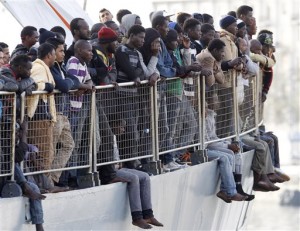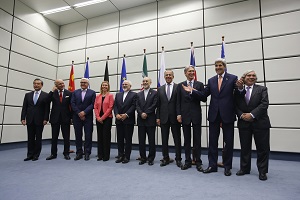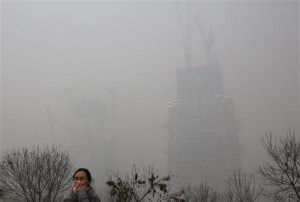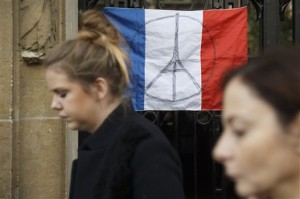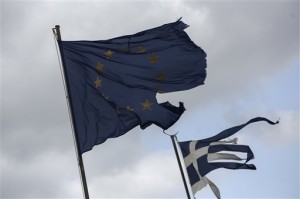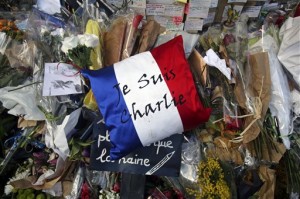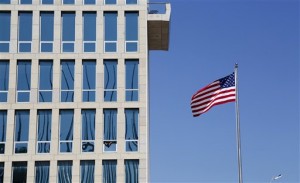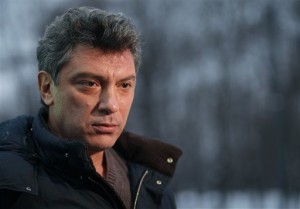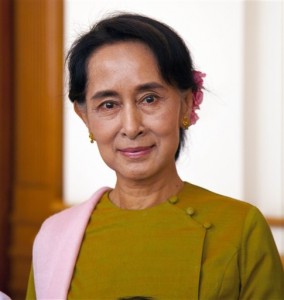Latest News
News on the World: Top Stories of 2015
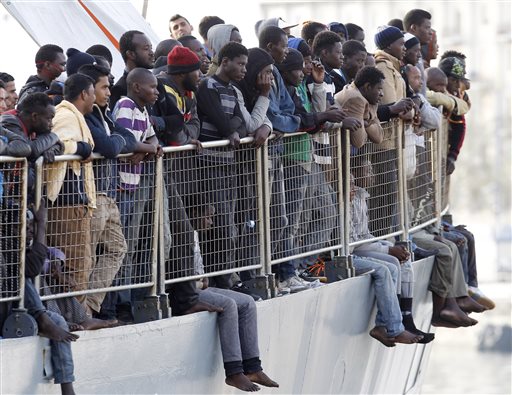
The Immigration Crisis
The Crisis Intensifies Throughout Europe in 2015
During the summer of 2015, the Balkans route replaced the Mediterranean as the most traveled path by migrants. The United Nations High Commission for Refugees projected that 3,000 people a day will attempt to cross the Balkans to reach Western Europe in the coming months. The German government estimated that 800,000 migrants would seek asylum there by the end of 2015, coming from countries such as Syria and Afghanistan to escape war and conflict. Europeans reacted to the immigration crisis in different ways. To shut off migrants, a fence was being built in Hungary along the border it shares with Serbia. More than 200 attacks on migrants had happened in Germany this year, including two fires set to asylum seeker shelters in August. The bodies of 71 migrants were found near Vienna. In Rome, migrants were evacuated by police after a protest against them turned violent. Macedonia declared a temporary state of emergency while dealing with the increasing number of migrants passing through on their way to Western Europe.
Iran Agrees to Historic Nuclear Deal
World Leaders Negotiate the Nuclear Deal with Iran
In July, Iran and the group of six nations, the United States, UK, France, China, Russia, and Germany, reached a historic agreement to limit Iran’s ability to produce a nuclear weapon in exchange for the lifting of crippling economic sanctions. “Today’s announcement marks one more chapter in our pursuit of a safer, more helpful and more hopeful world,” said U.S. President Barack Obama. He also said the agreement is “not built on trust, it is built on verification.” “Today is the end to acts of tyranny against our nation and the start of cooperation with the world,” said President Hassan Rouhani. Meanwhile, Israeli Prime Minister Benjamin Netanyahu called the agreement a “historic mistake,” and said, “Iran will get a jackpot, a cash bonanza of hundreds of billions of dollars, which will enable it to continue to pursue its aggression and terror in the region and in the world.” Iran agreed to reduce its stockpile of enriched uranium by 98%, place two-thirds of their installed centrifuges under international supervision, gave the International Atomic Energy Agency (IAEA) permanent access “where necessary when necessary,” and accepted a resumption of sanctions if Iran violates any of the terms.
U.N. Climate Talks
World Leaders Gather for Historic Climate Convention
The United Nations Climate Change began in late Nov., at a convention center just north of Paris, France. It was one of the largest gatherings of world leaders in history. For two weeks, 30,000 diplomats and delegates worked to find a new global pact that all countries could agree on, a pact that would ask every nation to take action in reducing their planet-warming greenhouse gas emissions. U.S. President Barack Obama, President Xi Jinping of China, Prime Minister Narendra Modi of India, President Vladimir V. Putin of Russia, and France’s President Francois Hollande were among the leaders present to kick off the talks.
Paris Terrorist Attacks
Three Coordinated Attacks by ISIS Kill Dozens in Paris
ISIS launched three coordinated attacks in Paris, killing 129 people and wounding hundreds on Nov. 13. Eighty-nine people died in an assault at a concert hall, the Bataclan, where an American rock band, the ironically-titled Eagles of Death Metal, was performing at the time. Dozens of others were killed in attacks on restaurants and a soccer stadium where France was playing a match against Germany. Seven of the eight terrorists died during the attacks. French authorities were still looking for the last remaining attacker. The attacks were the worst violence in France since World War II. French president François Hollande called the attack “an act of war,” and retaliated with airstrikes on Raqqa, Syria, ISIS’s self-declared capital. The United States joined France in the airstrikes, sending warplanes to Syria. The following week, hours after Russia acknowledged that a terrorist bomb brought down the Russian passenger plane on Oct. 31, President Vladimir Putin agreed to join with France in the fight against ISIS. Putin ordered a Russian missile cruiser to go to Syria and cooperate with French troops “as with allies.” The following week, police conducted a raid in a northern suburb of Paris. During the raid, Abdelhamid Abaaoud, the Belgian terrorist suspected of planning the Paris attacks, was killed. Investigators found evidence that Abaaoud, an ISIS fighter, had also been involved in at least four foiled terrorist plots in France this year, including the train attack in August.
More Economic Woes for Greece
Greece Misses Debt Payment
In June, Greece missed a critical debt payment of 1.5 billion euros to the International Monetary Fund (IMF), increasing the country’s financial crisis. Greece’s international creditors refused to extend the country’s bailout program. The IMF placed Greece in arrears, a classification used to avoid saying a country that doesn’t pay its debt on time is in default. The missed payment created alarm and chaos. Greece shut down its banking system, ordering its banks to close for six days. Standard & Poor’s released a statement about Greece that said, “a commercial default is inevitable within the next six months.” Greece’s Prime Minister Alexis Tsipras called for a referendum where voters would decide whether or not to accept the terms of the country’s creditors. In a July referendum, 61% of voters backed Prime Minister Alexis Tsipras call to vote “no” on the proposed budget cuts by creditors in return for loans that Greece needs. After the referendum, negotiations between Greece and European leaders resumed. In Aug., a third bailout for Greece was approved by Germany and other European governments. Greece received $14.5 billion, the first payment of a new three-year bailout that is worth a total of $95.6 billion.
Charlie Hebdo Attack
Twelve Are Killed in Terrorist Attack at Newspaper in Paris
On Jan. 7, two masked gunmen stormed the office of Charlie Hebdo, a satirical weekly magazine, in Paris, and killed 12 people, including the paper’s top editor, Stephane Charbonnier, several cartoonists, and two police officers. Five others were critically injured. The provocative magazine was known for publishing charged cartoons that satirized the Prophet Muhammad, most religions, the pope, and several world leaders. French President Francois Holland responded to the attack by saying that “France is in shock.” U.S. President Barack Obama and other world leaders condemned the attack. A manhunt began for the two gunmen, Said Kouachi, 34, and his younger brother Cherif, 32. Meanwhile, the driver of the getaway car, Hamyd Mourad, 18, turned himself in at a police station about 145 miles northeast of Paris. News reports said the brothers have connections to Al Qaeda in Yemen. Two days later, the Kouachi brothers took a hostage at a printing facility outside Paris. French police launched an assault on the building, freeing the hostage and killing the suspects. Meanwhile, in another incident in Paris, Amedy Coulibaly allegedly took several hostages at a kosher supermarket. Police killed Coulibaly, but four hostages were also killed. Coulibaly was also blamed for the shooting death of a female police officer on Jan. 8. Yemen-based Al Qaeda in the Arabian Peninsula claimed responsibility for the Charlie Hebdo attack. The militant group said in a statement that the leader of Al Qaeda, Ayman al-Zawahri, ordered the attack in retaliation for the magazine’s caricatures of the Prophet Muhammad.
Cuba and the United States
Cuba and U.S. Agree to Open Embassies
In July, Cuba and the U.S. reached an agreement to open embassies in Washington D.C. and Havana. The U.S. Embassy in Havana opened by the end of the month. The reestablishment of embassies was another major step in rebuilding relations between the two countries. On July 20, Cuba’s flag was raised outside its mission in Washington DC, officially re-opening it as an embassy and restoring full diplomatic relations between the two countries for the first time since 1961. In Havana, the U.S. mission was also restored to embassy status, and the American flag was raised when Secretary of State John Kerry visited in August.
Boris Y. Nemtsov
Russian Opposition Leader Is Assassinated
A vocal critic of Russian President Vladimir Putin, Boris Y. Nemtsov was shot and killed in Moscow on Feb. 27, 2015. The shooting took place on a bridge near Moscow’s Red Square, not far from the Kremlin. Putin condemned the killing and promised to lead the investigation into Nemtsov’s death. Nemtsov had been an outspoken critic of Putin, and most recently, of the war in Ukraine. Nemtsov’s murder was the biggest assassination to happen in Russia during Putin’s presidency. The incident sparked outrage and protests, with tens of thousands marching in Moscow in the days after the assassination.
Historic Myanmar Election
Opposition Party Wins Landmark Election in Myanmar
In Nov., Aung San Suu Kyi’s opposition party won Myanmar’s landmark national elections by a landslide. The first official results had the opposition party winning the majority of seats in Yangon, Myanmar’s largest city. The country’s ruling military-backed party conceded the election. If the results were honored by the military and ruling party, it would be the first time in over fifty years that Myanmar voters were able to freely pick their leaders through an election.
By: http://www.infoplease.com/

Latest News
Girls’ education is a ‘vital issue’ for Afghanistan: Karzai

Former president Hamid Karzai said in a meeting with Iran’s ambassador and special representative, Hassan Kazemi Qomi, that education of girls was a “vital issue” for Afghanistan.
Karzai said he appreciated Iran’s cooperation and its standing with the Afghan people, especially Iran’s contributions to education in Afghanistan.
During the meeting, Karzai said peace and stability in the region are in the interest of all regional countries.
Latest News
Uzbekistan’s humanitarian aid arrives in Balkh

A shipment of humanitarian aid from Uzbekistan was handed over on Thursday to the local officials of Balkh province in the trade port of Hairatan.
Local authorities said the aid, which includes flour, oil, wheat, sugar and meat, has been handed over by Uzbekistan’s Surkhandarya governor to the governor of Balkh.
The governor of Surkhandarya stated the purpose of sending this aid was to support the people of Afghanistan and stressed the need for the development of good relations between the two countries.
Latest News
Afghanistan’s problems caused more damage to Pakistan than 3 wars with India: Durrani

Islamabad’s special envoy for Afghanistan Asif Durrani said on Wednesday that Pakistan has suffered more due to Afghanistan’s internal situation than Pakistan has suffered in three wars with India in terms of blood spilt and finances drained.
Durrani said at a one-day International Conference titled “Pakistan in the Emerging Geopolitical Landscape”, which was organized by the Institute of Strategic Studies Islamabad (ISSI) and the German Friedrich Ebert Stiftung (FES), that over 80,000 Pakistanis died in the two decades of the War on Terror and that his country was still counting its dead and injured.
“After the withdrawal of NATO forces, it was hoped that peace in Afghanistan would bring peace to the region. However, such expectations were short-lived,” he said.
He also stated that attacks by the Tehreek-e-Taliban Pakistan (TTP) militant group on Pakistan’s border areas increased by 65 percent, while suicide attacks increased by 500 percent.
“The TTP’s enhanced attacks on Pakistan while using Afghan soil have been a serious concern for Pakistan. Another worrying aspect is the participation of Afghan nationals in these attacks,” he said.
Durrani also said Pakistan had suffered geopolitically since the Soviet Union invaded the neighboring country.
“The post-9/11 world order has negatively impacted Pakistan. Apart from losing 80,000 citizens’ lives, including 8,000 law enforcement agency personnel, the country’s economic opportunity cost is estimated at $150 billion,” Durrani said.
Talking about the future outlook for Pakistan in the regional context, Durrani said that while “our eastern neighbor is likely to continue with its anti-Pakistan pursuits, the western border poses an avoidable irritant in the short to medium term.”
However, he said Pakistan can overcome its difficulties with Afghanistan, including the TTP challenge.
-

 Latest News5 days ago
Latest News5 days agoPakistan’s frontiers minister stresses ‘dignified’ return of Afghan refugees
-

 Regional4 days ago
Regional4 days agoIranian president lands in Pakistan for three-day visit to mend ties
-

 Latest News3 days ago
Latest News3 days agoRashid Khan named AWCC’s brand ambassador
-

 Climate Change5 days ago
Climate Change5 days agoMassive river flooding expected in China, threatening millions
-

 World5 days ago
World5 days agoTwo Japan navy helicopters crash, one body found, 7 missing
-

 Sport4 days ago
Sport4 days agoKolkata beat Bengaluru by one run in IPL as Kohli fumes at dismissal
-

 Sport4 days ago
Sport4 days agoACL: Aino Mina 3-0 Istiqlal Kabul; Attack Energy 3-0 Khadim
-

 Climate Change4 days ago
Climate Change4 days agoRescuers race to reach those trapped by floods in China’s Guangdong

